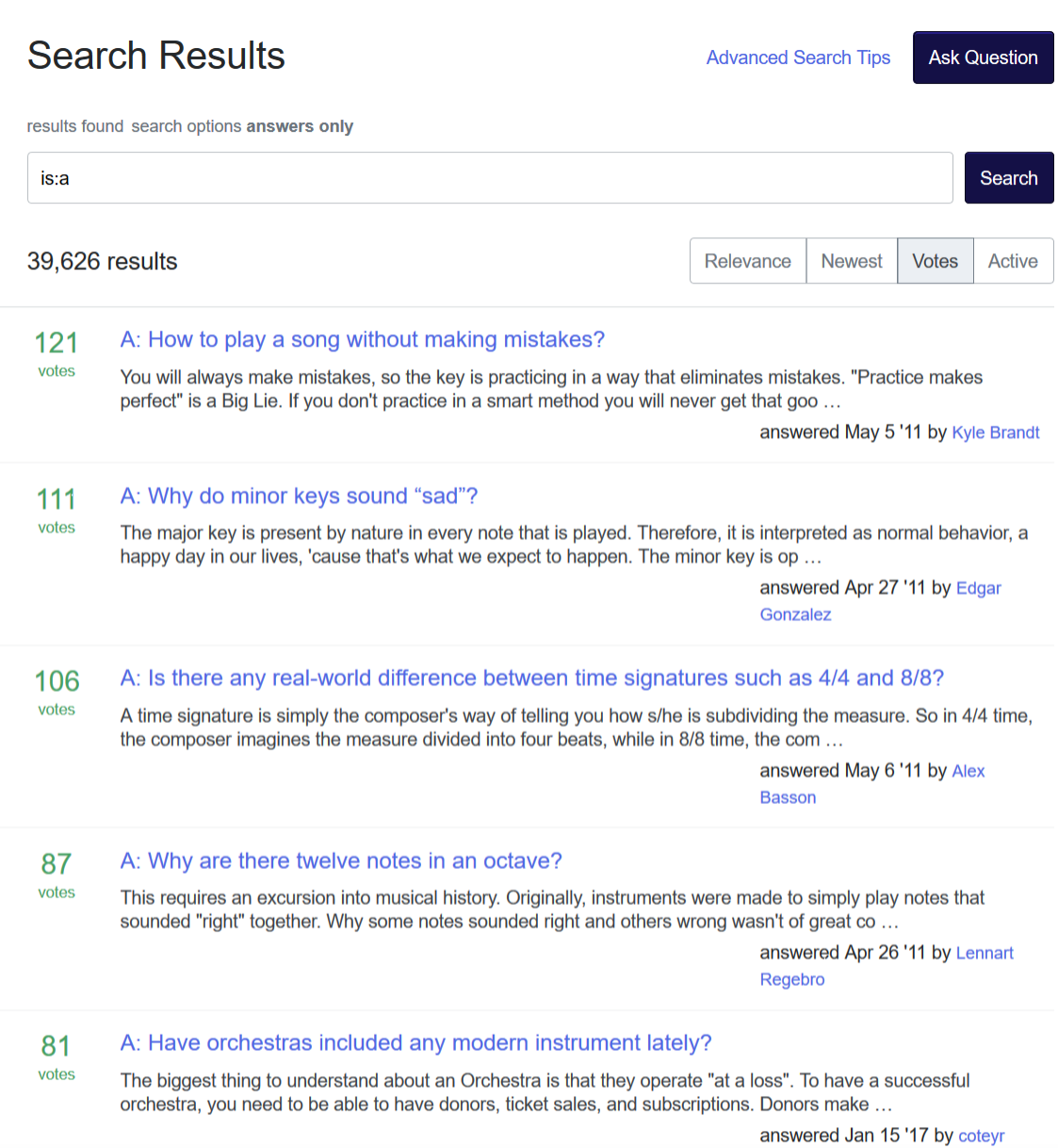This query shows you the top posts with the most up votes per site across the network, excluding per site metas and Stack Overflow:
declare @sql nvarchar(max)
create table #result( site sysname
, postid integer
, posttypeid integer
, title nvarchar(250)
, votetypeid integer
, votes integer);
select @sql = concat('insert into #result', string_agg(concat(N'
select * from (select top 1
''' , convert(nvarchar(max),name), N''' site
, v.postid
, p.posttypeid
, q.title
, v.votetypeid
, count(*) [#votes]
from ',convert(nvarchar(max),quotename(name)), N'.dbo.votes v
inner join ', convert(nvarchar(max),quotename(name)), N'.dbo.posts p on p.id = v.postid
inner join ', convert(nvarchar(max),quotename(name)), N'.dbo.posts q on q.id = nullif(p.parentid, p.id)
where p.posttypeid in (1,2) -- q, a
and v.votetypeid = 2 -- up
group by v.postid, q.title, p.posttypeid, v.votetypeid
order by count(*) desc
) data
'), 'union all'))
from sys.databases
where database_id > 5
and (name not like '%.meta' or name = 'stackexchange.meta')
and not (name = 'stackoverflow')
print @sql
exec (@sql)
select
site
, concat('https://'
, case
when len(parsename(site,2)) > 0 then
concat(parsename(site,1),'.',parsename(site,2))
else
site
end
, '.com'
, '/q/'
, postid
, '|'
, case posttypeid when 1 then '[Q] ' else '[A] on ' end
, title
) [Post Link]
, case votetypeid when 2 then 'Up' else 'Down' end [Up/Down]
, votes
from #result
order by votes desc
When run today this is what you get:
[![most upvoted post across network]](https://i.sstatic.net/iWjlj.png)
Keep in mind SEDE is only updated once a week, on Sunday at 03:00 UTC. Checkout the tutorial and the SEDE chatroom.



![most upvoted post across network]](https://i.sstatic.net/iWjlj.png)